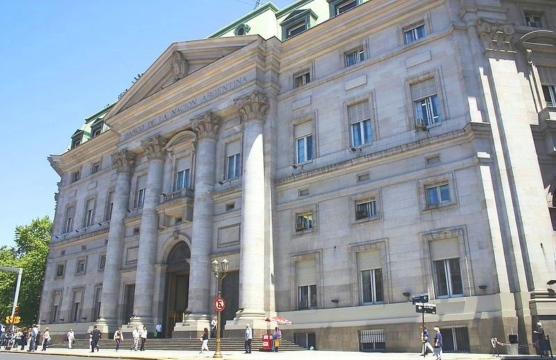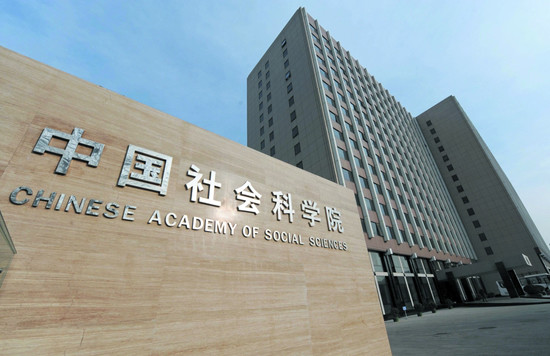
Will Default Dampen China-Argentina Ties?
The Fernández administration’s refusal to comply with a US court order to pay holdout hedge funds has once again landed Argentina in default.
This post is also available in: Spanish
Over the past two weeks, the world watched and waited as the Communist Party of China carried out its leadership reshuffle. The announcement of new Central Committee, Politburo, and Politburo Standing Committee members during the inaugural meeting of the Party’s Nineteenth Congress was greeted with a level of fanfare reserved exclusively for these occasions.
As the curtain comes down and appointments are confirmed, it’s time to take stock. What do the Party Congress proceedings, including the newly-announced foreign policy line-up, mean for Latin America? Can the region expect the sort of heightened diplomatic attention from China that it has received in recent years?
By most all accounts, the Party Congress signaled considerable continuity in Chinese foreign policy, including toward the Latin American region. President Xi Jinping called for shifts in Chinese domestic practices during the Party Congress as part of a “new era” for socialism with Chinese characteristics. However, on the foreign policy front, the proceedings were largely perceived as a validation of the country’s current strategy.
Xi’s own rhetoric during the Congress implied that China will largely stay the course in Latin America and other regions. The Chinese president spoke proudly of the recent half-decade’s progress in international affairs, China’s attempts to “foster a new type of international relations,” and its determination to forge a Community of Common Destiny. These are familiar slogans to China watchers in Latin America, and signs that the fundamentals of China-LAC diplomatic relations should change relatively little in the coming years.
Xi also noted that China continues to view itself as a developing country, albeit the world’s largest. As a result, we are likely to see continued Chinese engagement with Latin America—and with organizations such as the BRICS that promote collaboration among developing countries—in the name of South-South Cooperation.
The Party’s foreign policy team, which remains virtually intact, also signals continuity in overseas engagement. China’s top diplomats, State Councilor Yang Jiechi and Foreign Minister Wang Yi, will stay on as members of the Party’s Central Committee. State Councilor Yang’s ascension to the Party’s decision-making Politburo, and his likely promotion to Vice Premier, might even elevate the country’s foreign affairs as an area of focus for Chinese policymakers.
Foreign Minister Wang Yi’s prolonged tenure in the Central Committee could mean continued attention to Latin America, specifically. Wang has overseen China’s enhanced diplomatic engagement with Latin America in recent years. Highlights include the establishment of the China-CELAC Forum, new policy on Latin America and the Caribbean, and Panama’s recent decision to align itself diplomatically with the People’s Republic.
Song Tao, of the Party’s International Liaison Department, will join Yang and Wang on the Central Committee. The International Liaison Department is the Party’s diplomatic organ and serves as a point of contact with foreign political parties, including those in Latin America.
Following the Party Congress, Xi’s persona and views also loom larger and more influential than ever before. Xi’s growing authority bodes well for continued China-Latin America relations, to the extent that he and his close political allies can be credited with the heightened engagement in recent years. Xi’s trusted aide Li Zhanshu and ideological engineer Wang Huning, a former international politics professor at the prestigious Fudan University, were both appointed to the Politburo Standing Committee, which comprises the Party’s top seven leaders.
Continued engagement, as signaled during the Party Congress, is a potentially good thing for Latin America. This is especially the case as China focuses its attention on Eurasian and African countries along the Belt and Road, which is now enshrined in the Party constitution. At the same time, Latin American countries must be prepared to take full advantage of the opportunities that China has to offer, and to offset the negative externalities of continued Chinese investment in infrastructure and extractives. China’s Party and state leadership, as well as Chinese companies, are increasingly accustomed to operating in Latin America. Regional governments must be similarly prepared to manage continued political and economic overtures from China.
The Fernández administration’s refusal to comply with a US court order to pay holdout hedge funds has once again landed Argentina in default.
Who in China is advising on energy engagement with Latin America?
Will protesters succeed in halting the canal’s construction?

